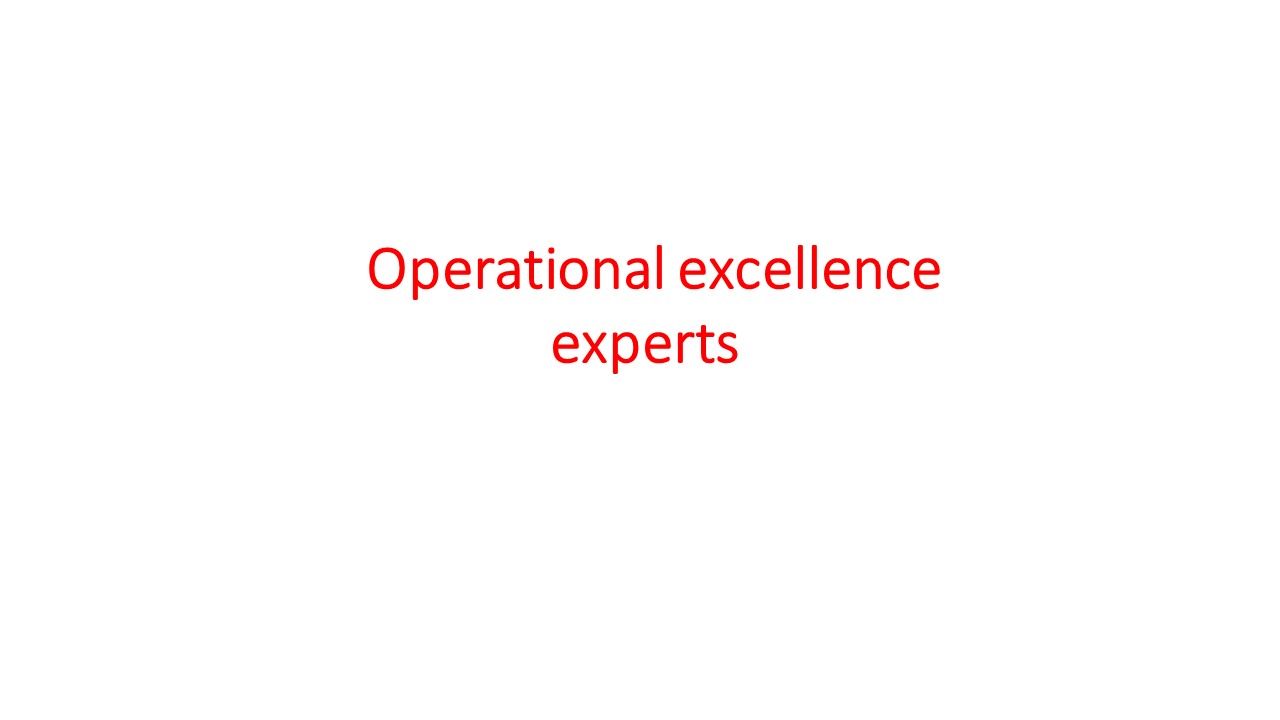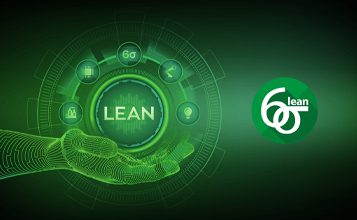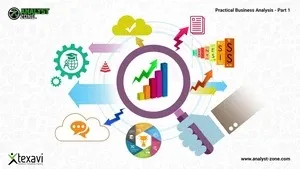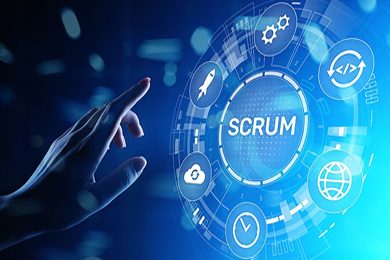This plan includes
- Limited free courses access
- Play & Pause Course Videos
- Video Recorded Lectures
- Learn on Mobile/PC/Tablet
- Quizzes and Real Projects
- Lifetime Course Certificate
- Email & Chat Support
What you'll learn?
- A thorough and practical understanding on the concepts of Six Sigma & Lean operations
Course Overview
Dear Learners,
I welcome you to this comprehensive course on “Lean Six Sigma Green Belt”. I am Parag Dadeech, Lean Six Sigma Master Black Belt, with extensive leadership experience in India & globally across a variety of business sectors. This course has been prepared quite meticulously to ensure that you are able to grasp all the major concepts with ease & be able to apply concepts practically. I am quite confident that the course shall impart you with a strong foundation on the concepts & tools of the Lean Six Sigma. It will also help you to progress on the Black-Belt training, with lots of confidence & ease, if you do decide to pursue it. In the present times of cut-throat competition & ever demanding needs of the customer, the knowledge & concepts of Lean Six Sigma will be essential for organizations to deliver increased value & achieve higher operational efficiencies. This course is covered in "6 Sections with 34 lectures" & various quizzes and illustrations, during the different phases of the course. I do sincerely hope that you have an enjoyable as well as a valuable learning experience.
Thank you, for enrolling.
Section-1 (Historical perspective & introduction to Six Sigma)
Lecture-1
• Historical perspective
• Features of Six-Sigma
• Lean + Sigma (a very good tool)
Lecture-2
• Six Sigma methodology
• Introduction to DMAIC methodology
Section-2 (Define Phase)
Lecture-3
• Define phase activities
• SMART Goals
• Project identification
• VOC (Voice of customer)
Lecture-4
• Translate VOC to CTQ’s
• VOB (Voice of Business)
• VOP (Voice of Process)
• COPQ (Cost of Poor Quality)
Lecture-5
• CTQ Drill down
• Process Mapping (SIPOC Analysis)
• Key elements of Project Charter
Lecture-6
• Team selection
• Team growth stages
• Toll gate reviews
Section-3 (Measure Phase)
Lecture-7
• Measure phase activities
• Operational definition
• Methods to collect data
• Types of Process Maps
Lecture-8
• Flow chart & Cross functional flow chart
• Value stream mapping & Benefits of VSM
• Lead Time & Process Time
Lecture-9
• What is Value
• Value adding activities (VA)
• Non-Value adding activities (NVA)
Lecture-10
• Types of Data
• Data collection plan
Lecture-11
• Population & sample
• Different types of sampling plan
Lecture-12
• Measurement system analysis
• What is precision & accuracy
• How much Error is acceptable
Lecture-13
• Basic statistics
• Measures of central tendency
• Measures of variation
Lecture-14
• Concept of Normal distribution
• Standard Normal distribution
• Concept of Z-value
Lecture-15
• Process Base Line (stability of process)
• Run charts
Lecture-16
• What is process stability
• Cp (potential process capability)
• Sigma level & PPM
Lecture-17
• What is Cpk
• What should be desired Cpk
• Sigma Level across different business sectors
Lecture-18
• Yield (Multi-step process)
• Concept of DPMO
Section-4 (Analyze Phase)
Lecture-19
• Analyze phase activities
• Some analysis Tools
• Ishikawa Diagram
• 5 Why Analysis
Lecture-20
• Brainstorming
• Data stratification
• Check sheets
Lecture-21
• What is FMEA & history of FMEA
• FMEA Process
Lecture-22
• Illustrations of FMEA
Lecture-23
• Modelling relationship between variables (Correlation)
• Correlation coefficient
• Uses of correlation study
Lecture-24
• Modelling relationship between variables (Regression)
• Simple Linear regression & multiple Linear regression
Section-5 (Improve Phase)
Lecture-25
• Improve phase activities
• Generate solution ideas
• SCAMPER & Mind Mapping
• Six Thinking Hats
Lecture-26
• Lean Tools for improvement
• 5S Technique
• Push versus Pull systems
Lecture-27
• What is SMED
• Steps in SMED
• Practical illustration of SMED
Lecture-28
• What is Kaizen
• Kaizen Process
• Piloting the solution & Full-scale implementation
Section-6 (Control Phase)
Lecture-29
• Control Phase
• Types of control methods
• Introduction to Statistical Process control (SPC)
Lecture-30
• Common Causes & special causes
• Illustration of Common Causes & special causes
• Why use SPC
Lecture-31
• Procedure for control charts
• What is Rational sub-group
• What are common "out of control" signals
Lecture-32
• How do you select correct "control chart"
• Control chart for "variable data"
• The Xbar-R chart
Lecture-33
• Illustration of Xbar-R chart
• Control chart for discrete data
• What is meant by "defect" and "defectives"
• The P-control chart & illustration of P-chart.
Lecture-34
• What is Poka Yoka
• Poka Yoka Methodology
• Illustrations of Poka Yoka
• Conclusive Remarks
Warm Regards,
Parag Dadeech
Pre-requisites
- There are no special prerequisites needed for the course. What is needed is the inquisitiveness to Learn & expand your knowledge. Rest everything just flows.
- This course will be quite useful & practical for beginners as well as advanced learners
- This course will equip Learners with a thorough practical understanding on concepts of Six Sigma, DMAIC methodology & Lean operations
Target Audience
- This course will be very useful for business practitioners & learners coming from diversified sectors, such as - manufacturing, operations, marketing, supply chain or service industries. It shall also be useful to students of business, operations or engineering. The Tools, Methodology & Principles taught in this course are quite universal in approach & can be deployed across diversified sectors.
- Learning imparted in the course is applicable both for manufacturing as well as service operations
Curriculum 40 Lectures 04:33:56
Section 1 : Historical Perspective & Introduction to Lean Six Sigma
- Lecture 2 :
- Six Sigma Methodology & the DMAIC Process
Section 2 : Define Phase
- Lecture 1 :
- Define Phase activities, SMART Goals, Voice of Customer
- Lecture 2 :
- Translate VOC to CTQ's, Voice of Business, Voice of Process, COPQ
- Lecture 3 :
- CTQ Drill down, Process Mapping (SIPOC), Key elements of a Project charter
- Lecture 4 :
- Team selection, Team growth stages, Toll gate review
Section 3 : Measure Phase
- Lecture 1 :
- Measure phase activities, Operational definition, Methods to collect Data
- Lecture 2 :
- Flow chart & Cross function flow chart, VSM, Lead time & Process time
- Lecture 3 :
- What is Value, Value adding activities & Non value adding activities
- Lecture 4 :
- Types of Data, Data collection plan
- Lecture 5 :
- Population & sample, Different types of sampling plan
- Lecture 6 :
- Measurement system analysis, Precision & accuracy, How much error is acceptable
- Lecture 7 :
- Basic statistics, Measures of central tendency & variation
- Lecture 8 :
- Concept of normal distribution, Standard normal distribution, Concept of Z value
- Lecture 9 :
- Process base-line (stability of process), Run charts
- Lecture 10 :
- What is process stability, Cp (potential process capability), Sigma level & ppm
- Lecture 11 :
- What is Cpk, Sigma level across different industries
- Lecture 12 :
- Yield (multi-step process), concept of DPMO
- Lecture 13 :
- Quiz on Define Phase
- Lecture 14 :
- Quiz on Measure Phase
Section 4 : Analyze Phase
- Lecture 1 :
- Analyze phase activities, Analysis tools, Ishikawa diagram, 5 Why analysis
- Lecture 2 :
- Brain storming, Data stratification, Check sheets
- Lecture 3 :
- What is FMEA, Process to conduct FMEA
- Lecture 4 :
- Practical illustrations of FMEA
- Lecture 5 :
- Modelling relationship between variables (Correlation),Uses of correlation study
- Lecture 6 :
- Regression, Simple Linear & Multiple Linear regression
- Lecture 7 :
- Quiz on Analyze Phase
Section 5 : Improve Phase
- Lecture 1 :
- Improve phase activities, Generate solution ideas, Scamper& Mind mapping tools
- Lecture 2 :
- Lean tools for improvement, 5S, Push vs Pull systems
- Lecture 3 :
- What is SMED, How SMED is done, Practical illustrations of SMED
- Lecture 4 :
- What is Kaizen, Kaizen process,Piloting the solution & Full-scale implementation
- Lecture 5 :
- Quiz on improve Phase
Section 6 : Control Phase
- Lecture 1 :
- Types of control methods, introduction to Statistical Process Control (SPC)
- Lecture 2 :
- Common causes & Special causes, Why use SPC
- Lecture 3 :
- Procedure for controlcharts, Rational subgroups, Common "out of control" signals
- Lecture 4 :
- Control chart selection, Control chart for variable data, The Xbar-R chart
- Lecture 5 :
- Control chart for discrete data, defect and defectives, P-control chart
- Lecture 6 :
- What is Poka Yoka, Methodology of Poka Yoka, Illustrations of Poka Yoka
- Lecture 7 :
- Quiz on Control Phase
Section 7 : Conclusive Remarks
- Lecture 1 :
- Conclusion
Our learners work at
Frequently Asked Questions
How do i access the course after purchase?
It's simple. When you sign up, you'll immediately have unlimited viewing of thousands of expert courses, paths to guide your learning, tools to measure your skills and hands-on resources like exercise files. There’s no limit on what you can learn and you can cancel at any time.Are these video based online self-learning courses?
Yes. All of the courses comes with online video based lectures created by certified instructors. Instructors have crafted these courses with a blend of high quality interactive videos, lectures, quizzes & real world projects to give you an indepth knowledge about the topic.Can i play & pause the course as per my convenience?
Yes absolutely & thats one of the advantage of self-paced courses. You can anytime pause or resume the course & come back & forth from one lecture to another lecture, play the videos mulitple times & so on.How do i contact the instructor for any doubts or questions?
Most of these courses have general questions & answers already covered within the course lectures. However, if you need any further help from the instructor, you can use the inbuilt Chat with Instructor option to send a message to an instructor & they will reply you within 24 hours. You can ask as many questions as you want.Do i need a pc to access the course or can i do it on mobile & tablet as well?
Brilliant question? Isn't it? You can access the courses on any device like PC, Mobile, Tablet & even on a smart tv. For mobile & a tablet you can download the Learnfly android or an iOS app. If mobile app is not available in your country, you can access the course directly by visting our website, its fully mobile friendly.Do i get any certificate for the courses?
Yes. Once you complete any course on our platform along with provided assessments by the instructor, you will be eligble to get certificate of course completion.
For how long can i access my course on the platform?
You require an active subscription to access courses on our platform. If your subscription is active, you can access any course on our platform with no restrictions.Is there any free trial?
Currently, we do not offer any free trial.Can i cancel anytime?
Yes, you can cancel your subscription at any time. Your subscription will auto-renew until you cancel, but why would you want to?
Instructor

0 Course Views
Courses



 Tech & IT
Tech & IT
 Business
Business
 Coding & Developer
Coding & Developer
 Finance & Accounting
Finance & Accounting
 Academics
Academics
 Office Applications
Office Applications
 Art & Design
Art & Design
 Marketing
Marketing
 Health & Wellness
Health & Wellness
 Sounds & Music
Sounds & Music
 Lifestyle
Lifestyle
 Photography
Photography














